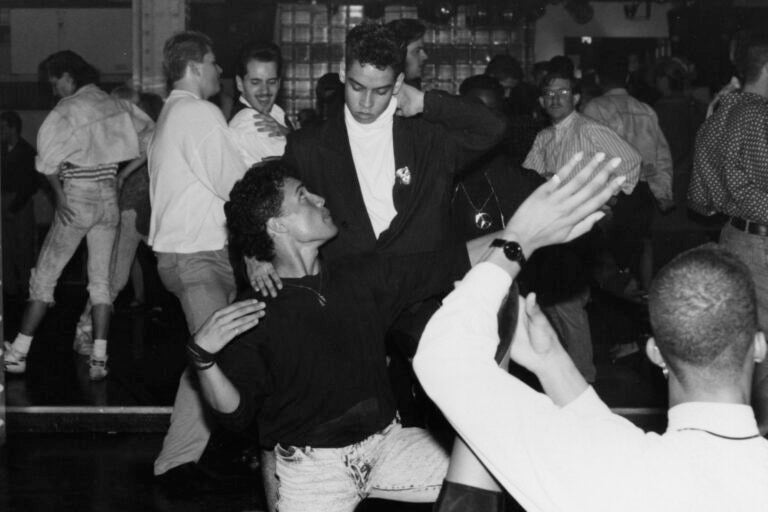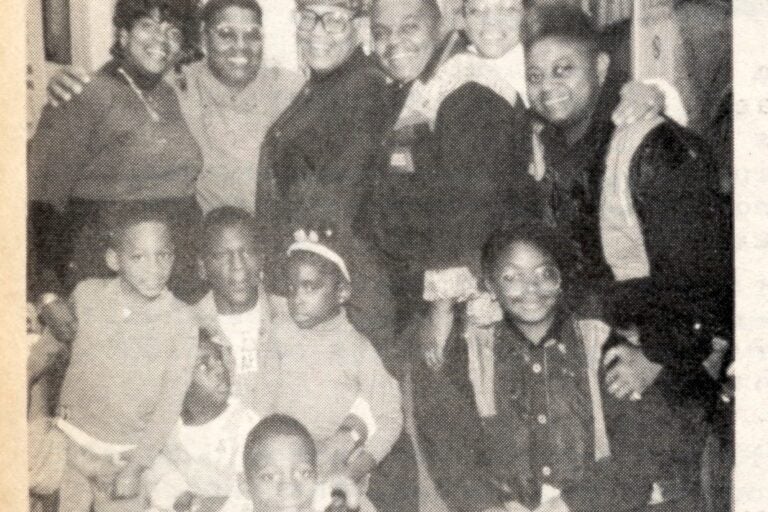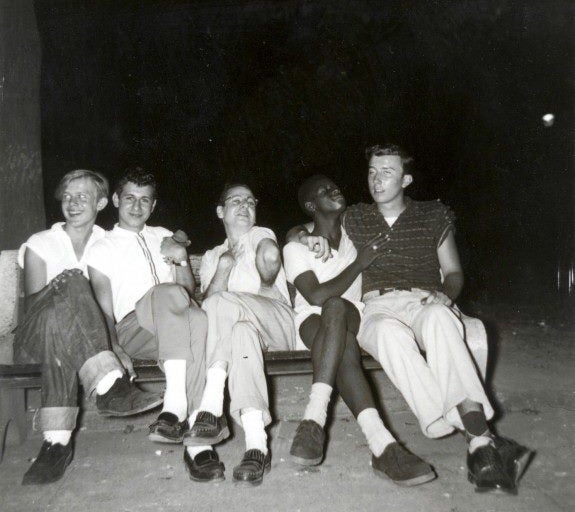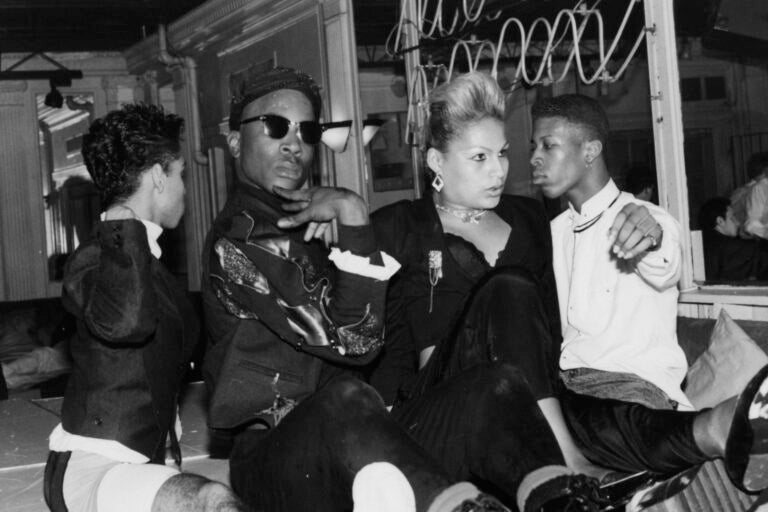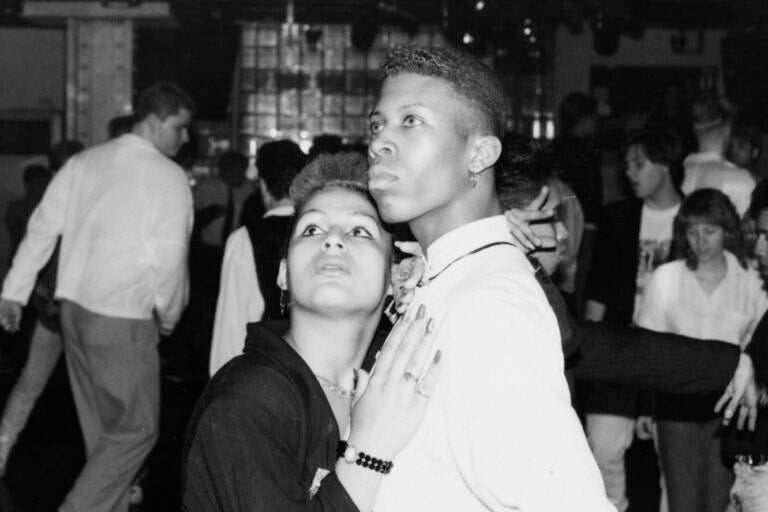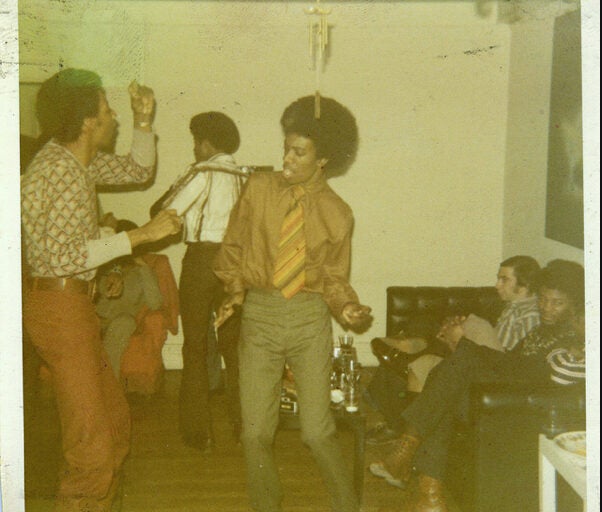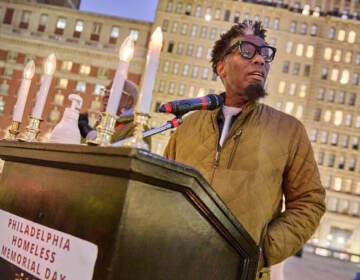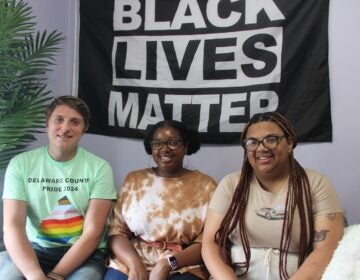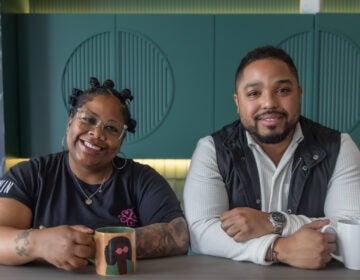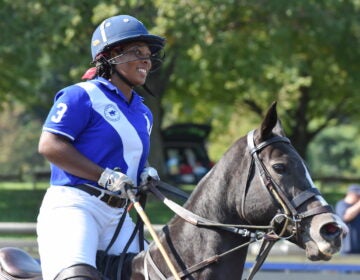Philadelphia’s Black, queer history is rich, and these historians want more people to know about it
A pair of Philadelphia historians are working to amplify the lesser-known history of Black, queer figures of Philadelphia and keep their stories alive for the next generation.
Listen 2:02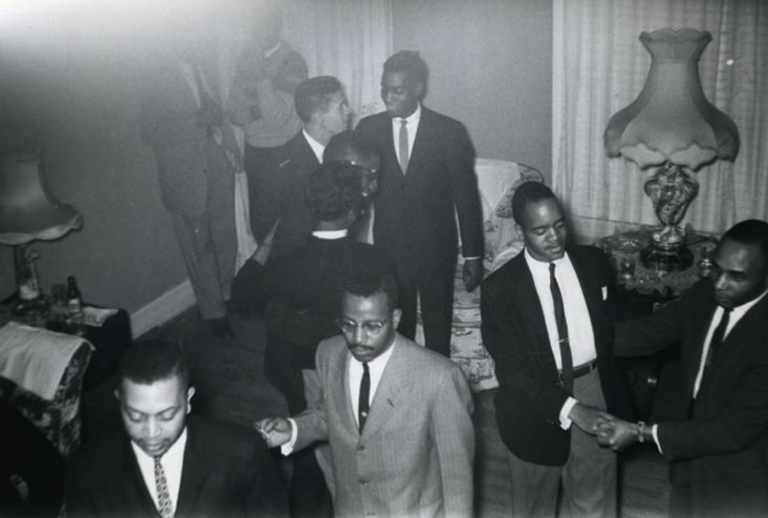
The West Set (The Black LGBT Archivists Society of Philadelphia)
From Philly and the Pa. suburbs to South Jersey and Delaware, what would you like WHYY News to cover? Let us know!
Philadelphia is well known for residents who have led the charge in civil rights, health care and entertainment.
However, a little-known collection of archives shows that many of the same people were also leaders in the Black LGBTQ+ circles. That includes people like Bayard Rustin, an openly gay Black man from West Chester, Pennsylvania, who, alongside Martin Luther King Jr., organized the Civil Rights march to Washington, D.C., in 1963.
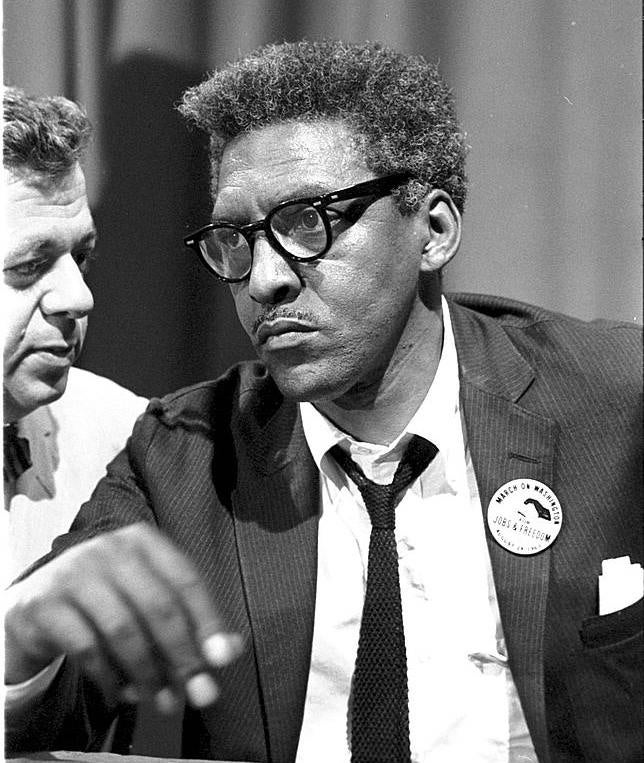
“There are so many folks from other communities that just don’t really understand being Black and queer in the world today. How it is currently, how it was in the past,” said Gary Hines, a community leader working alongside Bob Skiba to preserve these histories. “Particularly the Black and queer culture, [there’s] really not a lot of history written about.”
Earlier this month, Hines presented Skiba’s initial findings at a Free Library of Philadelphia event for Black History Month. He added slides to include present-day Philadelphians now at the helm of Black LGBTQ advocacy and leadership.
Archivist Skiba culled everything he could at the William Way LGBT Community Center to find evidence of Black, queer Philadelphia over the years. He curated newspaper clippings, program flyers and photographs showing how people lived, moved, socialized and found their safe spaces.
Archival work is important to stitch together previously unknown pieces of, what Skiba calls, “this great quilt we call the LGBTQIA community.”
“Until all the stories are told, the complete story isn’t told,” he said.
Skiba has worked for almost 50 years in historical documentation and preservation, but sometimes that’s difficult work. In the 1930s, slivers of daily life for people in the Black LGBTQ+ community were hard to find.
However, the more he researched, the more he noticed why. Queer communities were typically overlooked or misrepresented in mainstream newspaper coverage of the 1930s.
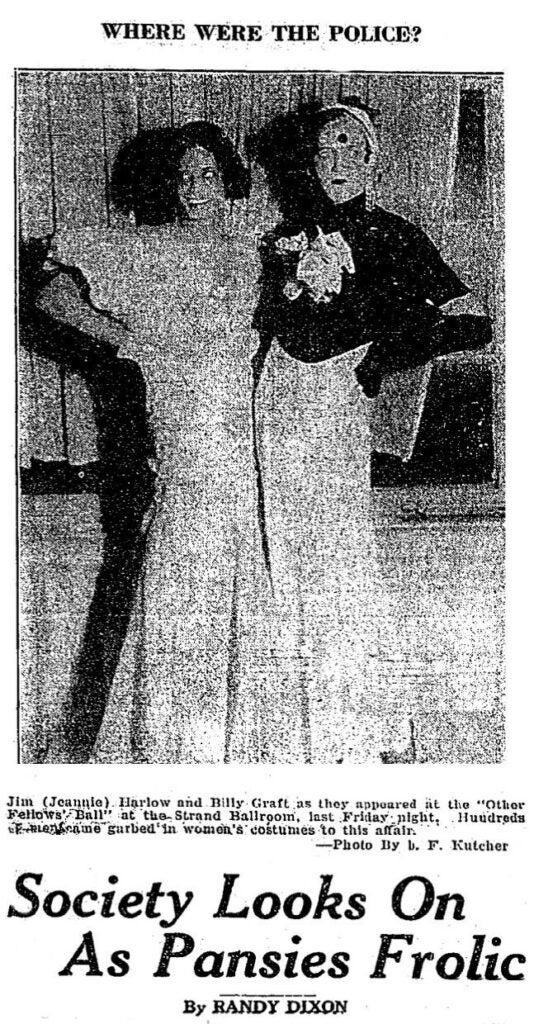
rand Ballroom on Broad Street, in The Philadelphia Tribune. (William Way Community LGBT Center Archives)
“Nice genteel Philadelphians didn’t talk about [the queer community]. So it makes it really hard to do the research,” Skiba said. “Doing queer history in general, it’s a lot of uncovering. It’s a lot of reading between the lines. It’s a lot of putting pieces together.”
So, he sought out more pieces and began to rifle through newspapers and magazines published for the Black community, such as the “Philadelphia Tribune” and the “Baltimore African American.”
Hines noticed something else about how the LGBTQ community was described, then and now.
“I had discovered the comparison and the similarities between things that happened 50, 60, 70 years ago that are still kind of happening today,” Hines said. “Anything that was in print about the community was always very salacious and lurid and things like, ‘people got busted at a bar somewhere’ or ‘somebody was soliciting somebody else.’”
Other material showed where they found a space to blend in, places like Black jazz clubs.
“In the ‘30s and ‘40s, one was Pep’s, which was at the corner of South Broad and South Street,” Skiba said. “I find that a lot of Black gay men for instance who were into jazz hung out at those kinds of places.”
Unlike the tabloids and gossip papers in New York that shared the general goings-on in drag balls or dance parties, the depictions in the Philadelphia papers were far from Hines’ own experiences.
Hines was a house/dance DJ, former commissioner and a community activist steeped in the culture. He remembers what he called “the early days,” a cohesive, dedicated group of people pushing for equity across the board, better health care access and a seat at the political table.
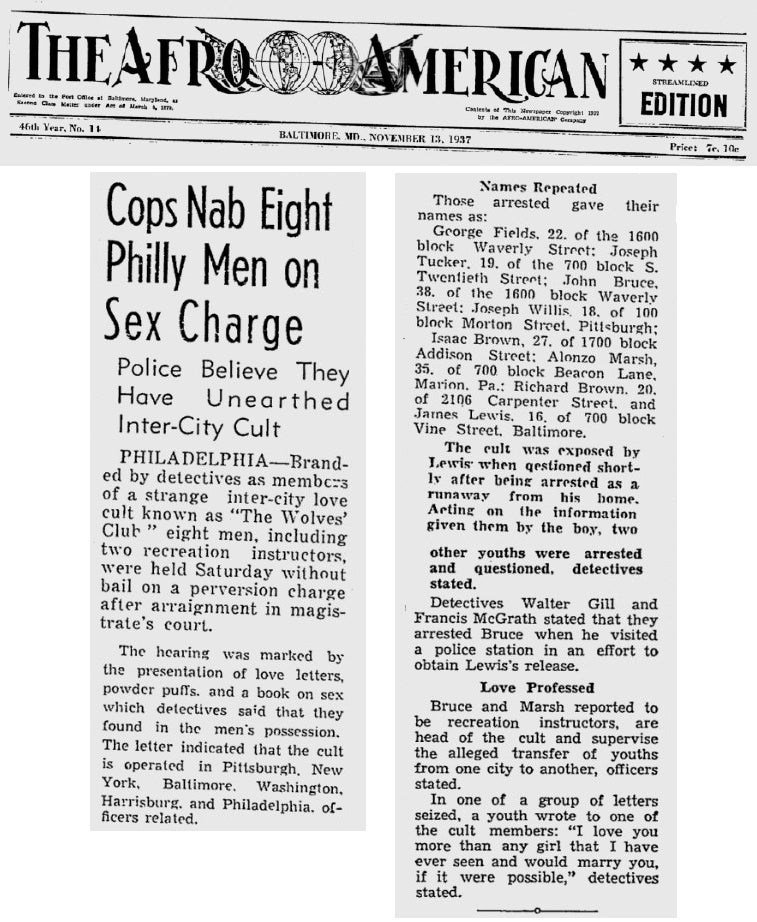
Several people were able to achieve just that.
He rattled off a list of important figures who have since passed.
People like Anita Cornwell, the first Black woman writer to publicly identify as lesbian in the 1970s and ‘80s; Joe Beam, journalist and the editor of the first collection of Black gay writing entitled “In the Life: Black Anthology”; and Michael Hinson Jr., a tireless advocate for Black and LGBTQ unhoused youth and who was among the first to mobilize strategies against HIV/AIDS for the Black community.
Their legacies inspired people like Lee Carson, who moved to Philadelphia to work in public health on a study for the Centers for Disease Control and Prevention. Over the years, he became a leader in the community, serving as interim executive director of The Colours Organization which Hinson Jr. co-founded, and provided therapy to LGBTQ adults at Mazzoni Center’s Open Door Counseling Center. He also co-founded the Black Gay Men’s Leadership Council.
Carson called Hinson Jr. his mentor. By working alongside him for several years, he saw how important political will was to make progress in the community.
“[Hinson Jr.] really knew politics. He knew how the city operated. He had a lot of relationships as a result of that he also worked across sectors,” Carson said. “He was an openly Black gay man [and] had a lot of connections with larger Black institutions like the NAACP.”
He said learning and working with Philadelphia leaders like Hinson Jr. showed him what was possible.
Through education, be it at Free Library events or in classroom settings, Hines and Skiba want more people to have access to and know the archives at the William Way Community LGBTQ Center exist. This way, they learn who came before and who inspires the queer Black leaders of today.
“In 2024, there’s still tons of LGBT people of color doing things, good things, positive things around the city,” Hines said. “We’re elected officials. We’re in government. We own businesses.”

Get daily updates from WHYY News!
WHYY is your source for fact-based, in-depth journalism and information. As a nonprofit organization, we rely on financial support from readers like you. Please give today.


